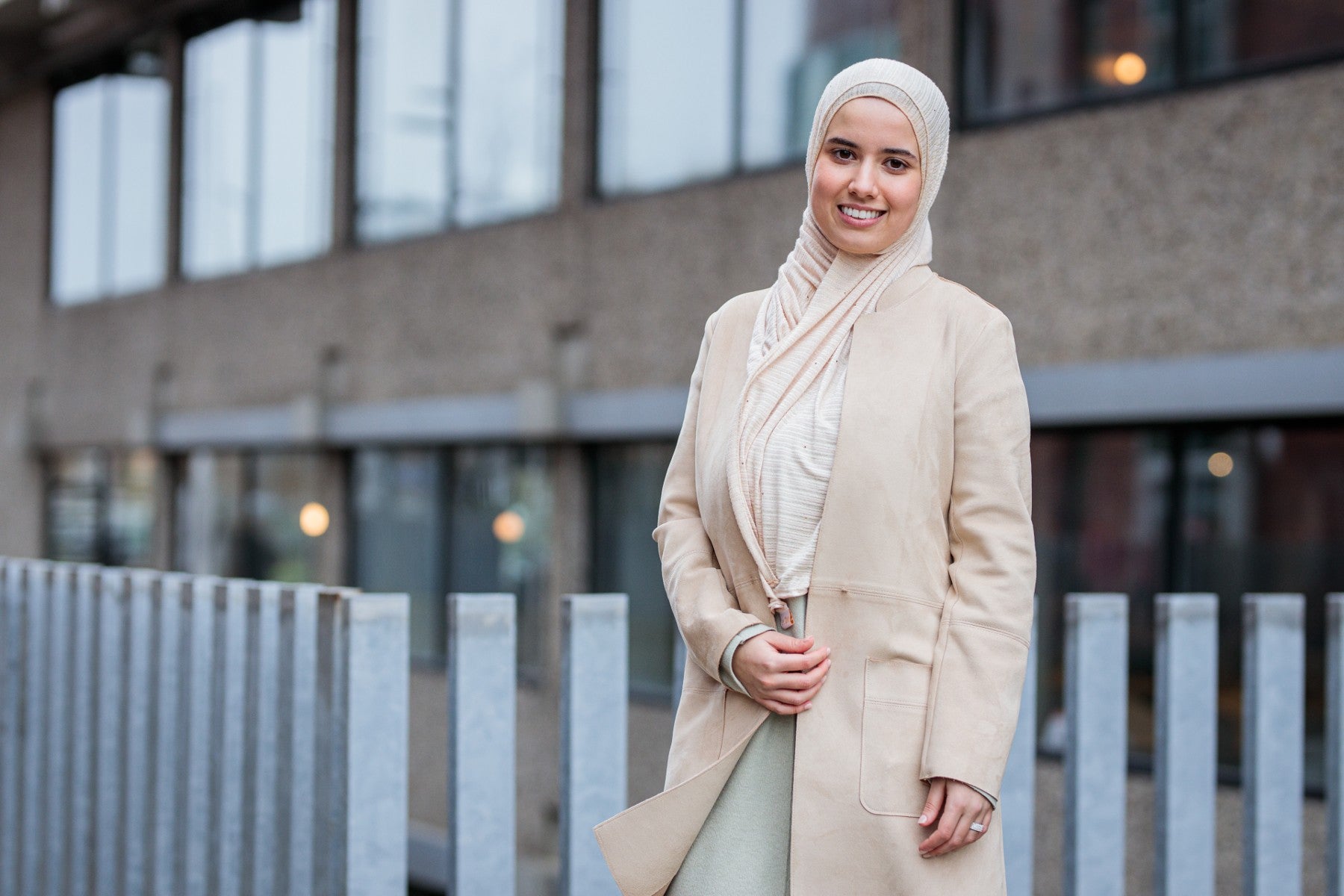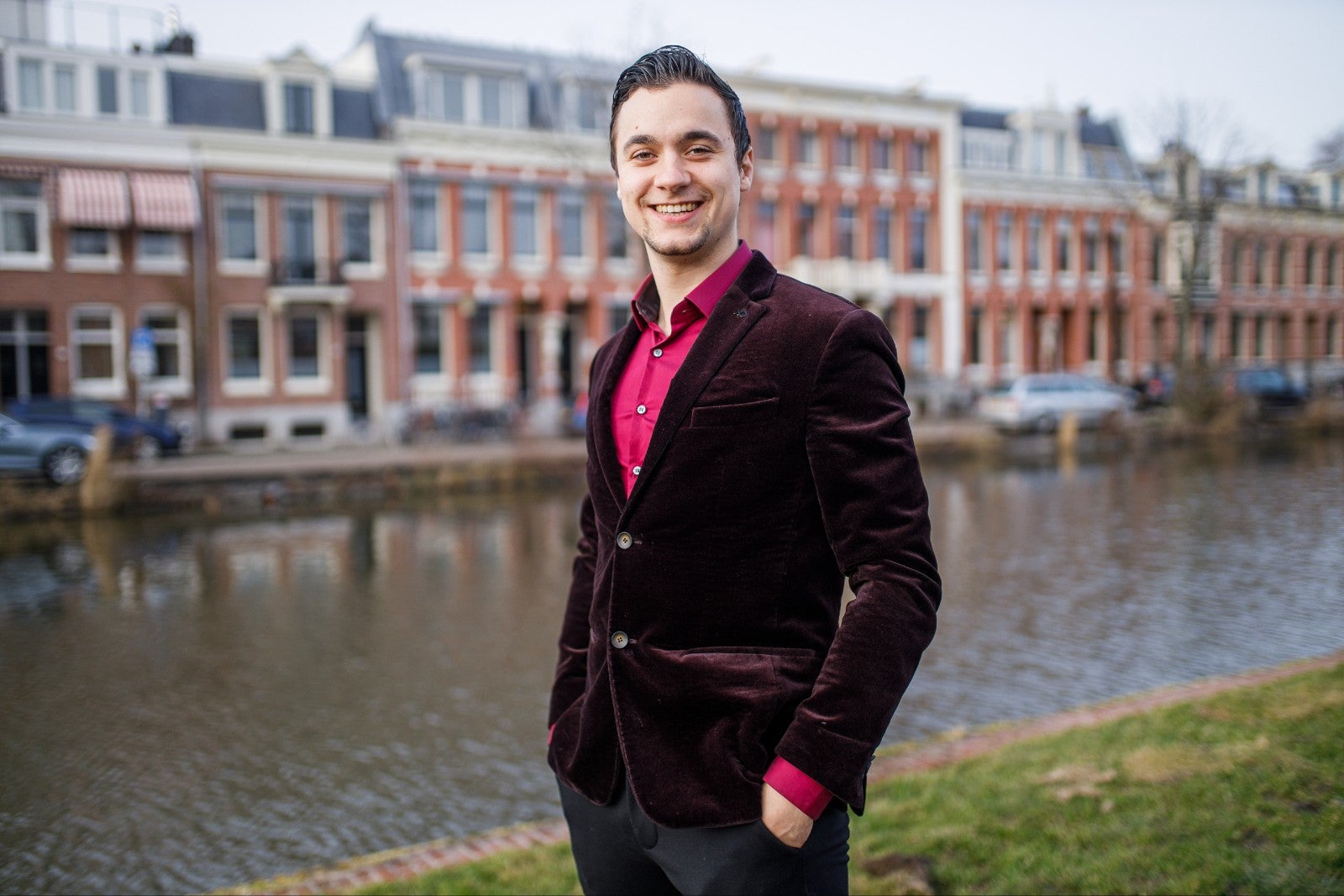VU alumna Sara Ben Hmido (21) is far from following a standard career path: after starting in vocational training (vmbo), she quickly climbed to pre-university education (vwo). Now, she combines her medical studies with a doctoral research focused on AI in healthcare.
How do you explain the start of your academic career?
„I didn't enjoy primary school much: I was very shy and didn't really stand out. Suddenly, in vocational training, the coursework was very easy for me, but that didn't automatically propel me forward. For example, when I expressed my desire to move to higher education, a teacher said, 'Stay in vocational training, because that's where you excel.'"
„Every time I've been underestimated has served as fuel for me. I simply wanted to become a doctor, and nothing was going to stand in my way. When I saw that what I had always intended actually worked out: like transitioning to the 2nd year of higher education and then to the 3rd year of pre-university education, it continually reinforced my self-belief. Somewhere, I think my perseverance today is rooted in my start in vocational training. It taught me how to pursue my goals."
Where did your perseverance come from?
„I knew early on that I wanted to become a doctor. My mother was active in healthcare, and from a young age, I was very interested in her stories and the unused test tubes she sometimes brought home. Also, my family is incredibly important to me. Their belief in me strengthened my belief in myself. If I ever doubted myself, they encouraged me and offered practical advice: for example, suggesting that I could already ask for extra study material if I wanted to move up a level. Without them, I couldn't have done it."
Did you immediately feel at home at the VU?
„I was the first in my family to go to university. It was quite daunting to navigate my way around such a large university after the safe environment of secondary school. It helped that the medical faculty had its own building, making it more manageable. But still, I missed having someone to turn to with my questions."
„Now, I try to be the person who can answer those questions for students. I'm a tutor and lead a study group. When I see nervous first-year students, I often approach them to offer some encouragement. Because I know it's a daunting and uncertain time. They often have questions about how a physical examination works, what an anatomy lesson is like - which can be quite daunting with deceased individuals involved - or about attendance requirements. Anyone can come to me if they're struggling."

You've completed your bachelor's, you're now working on a master's, but you're already doing doctoral research. How does that work exactly?
„That's arranged through the MD/PhD program, which allows you to start a doctoral research during your clinical rotations. You have to be offered that opportunity. I got into it through my bachelor's thesis. Of course, I don't have the knowledge of a master's student yet, but I work hard and it helps that I'm in a very nice research group with a supportive supervisor."
What is your PhD research about?
„My research focuses on integrating predictive machine learning into medicine, specifically in colorectal surgery. Currently, we're trying to predict the best treatment with the lowest risk of intestinal leakage for patients with colorectal cancer who need to have a tumor removed, which can be fatal. I believe we shouldn't be afraid of AI, but should see it as a real addition to treatment. In one of my studies, for example, I talk to (former) patients about their experience and how they would like to see such a model implemented themselves. I get to approach it literally from all angles, which I really like, as it allows me to see all aspects of how these innovations are developed and implemented."
What can we expect from you in the future?
„I deliberately haven't mapped out my path exactly, but I do know that I want diversity in my career. I want to continue doing different things: being active in education, but also providing one-on-one patient care. I'm also currently an operating room assistant at the Spaarne Gasthuis in Hoofddorp in the Orthopedics department, and I really enjoy doing that."
You don't seem to sit still much.
„That's right, I'm a busy bee. I love the work I do and prefer to spend as much time on it as possible. For me, doing research doesn't feel like work, but like a hobby."








